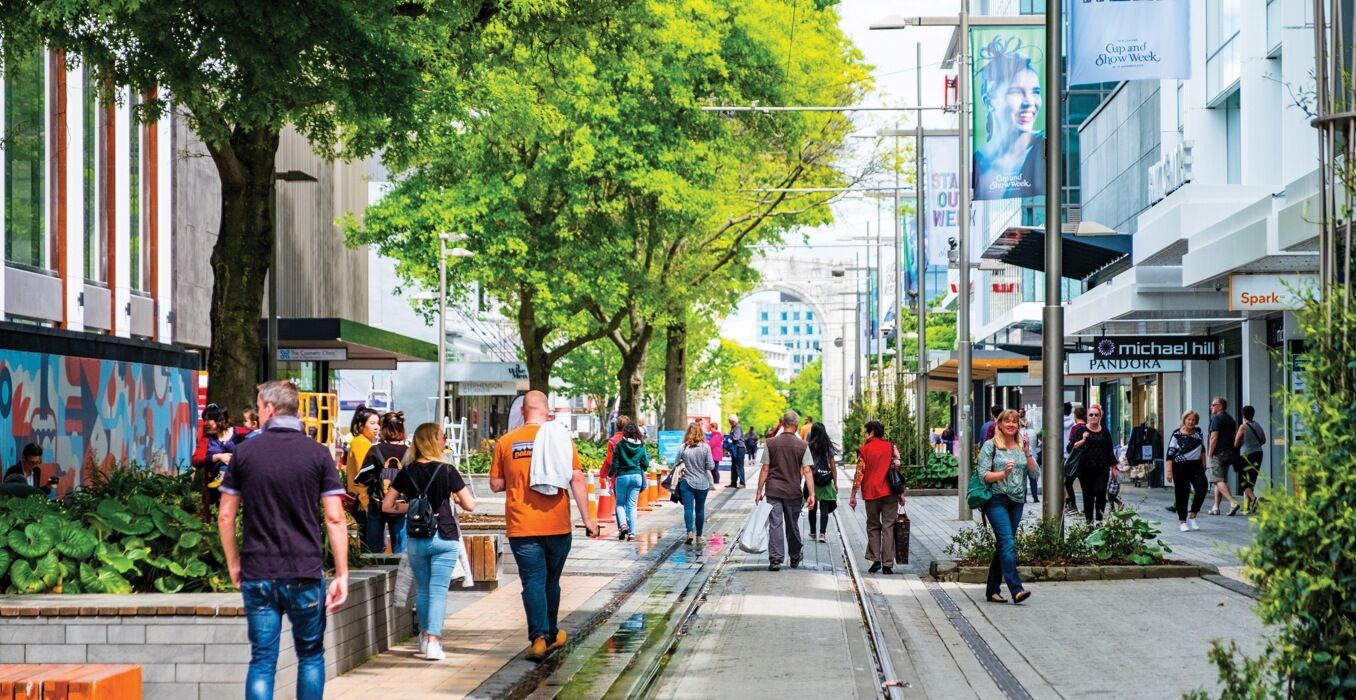
Commercial -
Retail sector dashboard improving
Recent stabilisation in retail spending activity across sector categories hints at cautious consumer optimism and this sentiment is beginning to flow through to the retail property sales and leasing market.
Bayleys national director retail, Chris Beasleigh says big players in the property investment market have led the charge for well-located retail assets, and with economic recovery slowly underway, there’s opportunity across the broader retail sector.
Acknowledging it’s been a tough run for retail with many businesses unable to weather high interest rates and inflation, escalating operational costs, and sluggish consumer sentiment, Beasleigh says sector recovery will take time.
“Although interest rate drops and inflation clawback is having some positive impact on consumer spend and business outgoings, we wouldn’t expect to see tangible uplift in retail activity and business fundamentals until late this year as gains flow through to tills.”
The latest New Zealand Retail Market Update from Bayleys’ Insights & Data team outlines tentative recovery for retail leasing with vacancy rates blended across town centre, large-format and trade-retail properties.
“Suburban retail has fared pretty well overall, supported by hybrid work models that have kept people working partially – or fully – from home or in satellite locations close to where they live,” explains Beasleigh.
“Whereas the vacancy rate in CBDs across the five major cities is sitting at more than 10 percent, with operator churn beyond what we would generally expect.
“Across the board, landlords who are prepared to work closely with tenants to structure an advantageous lease for both parties will be better-positioned once the market corrects – and it will get better.”
A survey of Bayleys retail brokers around the country shows that leasing sentiment is shifting toward neutral or slightly positive territory thanks to falling inflation and easing of interest rates. They also highlight a clear divide between retail asset classes, with well-located, high-performing properties seeing rent growth, while weaker assets face longer vacancies or rental drops.
“Meanwhile the retail investment market has now moved into a ‘neutral’ phase, and although interest rate cuts are positive, persistently high bond yields are tempering expectations for rapid recovery in retail property yields or capital values,” says Beasleigh.
Large-format retail has consistently offered investors more stable rents and strong occupancy, with retailer businesses drawn to the foot traffic, parking, and logistical advantages these well-located centres boast. International retailers are scoping potential for future growth and market penetration, encouraged by heavyweight operators such as Costco and Kmart.
“Britain-based JD Sports has opened a branch in Christchurch following success with five other stores in Auckland, Hamilton and Wellington, while South Africa-based retailer Panda Mart has opened in Christchurch off the back of its successful Pakuranga store and is reportedly looking at other new sites.
“Kiwis love a new entrant to the market and no doubt they’ll be camping out waiting for Swedish furniture retailer IKEA to open at Sylvia Park at the end of this year.
“But what New Zealand consumers seem to be hanging out for is a viable alternative to the existing supermarket duopoly, with German retailers Aldi and Lidl being name-dropped as brands shoppers would like to see here.”
With hospitality businesses overrepresented in business liquidation data, Beasleigh says in most cases it’s not the rent that’s the culprit – it’s escalation in the pure costs of running a business in today’s economic and social climate.
“There are so many factors at play here – from rising food and wage costs, high rent and compliance outgoings, and the public reining in discretionary spending. And when looking at the main centres, it’s not simply a matter of getting workers back to the office to support CBD hospo outlets – it’s way bigger than that.”
With a traditional lag between Australia and New Zealand trends, Bayleys’ global real estate partner Knight Frank provided a glimmer of hope in its April 2025 Australian Retail Review.
The firm reported retail sales growth of 3.6 percent year-on-year to February 2025 in Australia, with forecasts predicting continued strong growth throughout the year as consumer spending recovers. Knight Frank says major retailers reported steady profits in FY25, following strong uplift in profit margins in FY24, where the top 20 shopping centres experienced 5.5 percent growth in moving annual turnover, indicating improved retail sales.
On the investment side, deal flow has risen strongly in Australia with $9.9 billion of retail investment property traded in 2024, with private investors accounting for 45 percent of total acquisitions.
A flurry of sales for grocery store-anchored assets in New Zealand is evidence that well-resourced investors are prepared to look through the current economic cycle and bank on the counter-cyclical resilience, long-term income stability, and inherent potential for capital growth that these high-profile properties offer.
Bayleys points to recent sales like Woolworths Metro Herne Bay, the Woolworths Distribution Centre in Christchurch, Kelston Mall in Glen Eden, Auckland and Eastgate Shopping Centre in Christchurch as evidence of confidence in supermarket-anchored properties in growth locations.